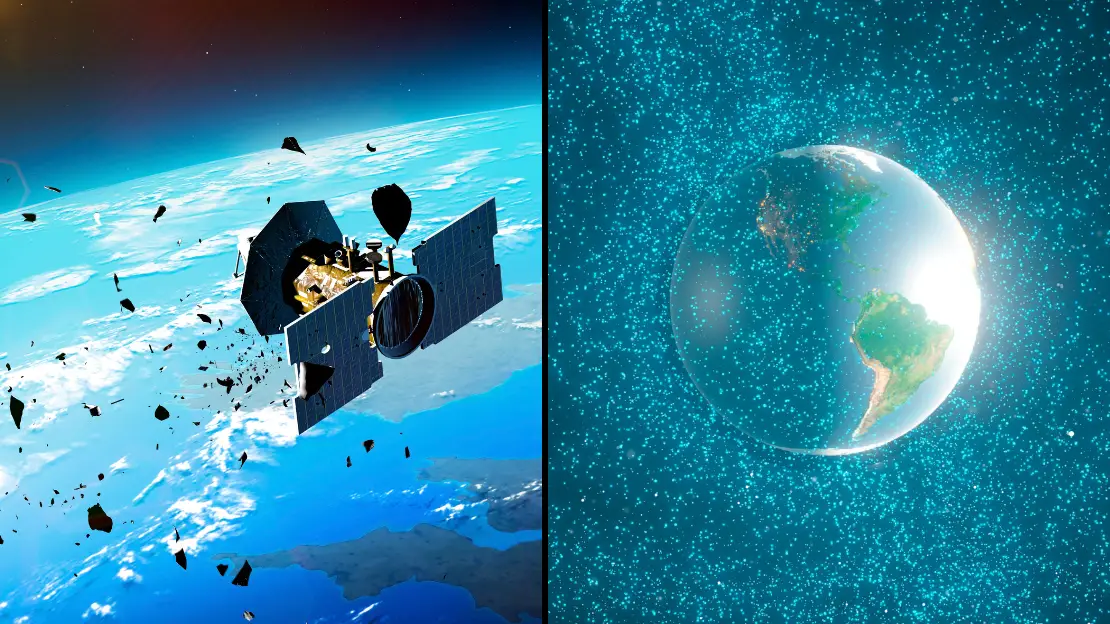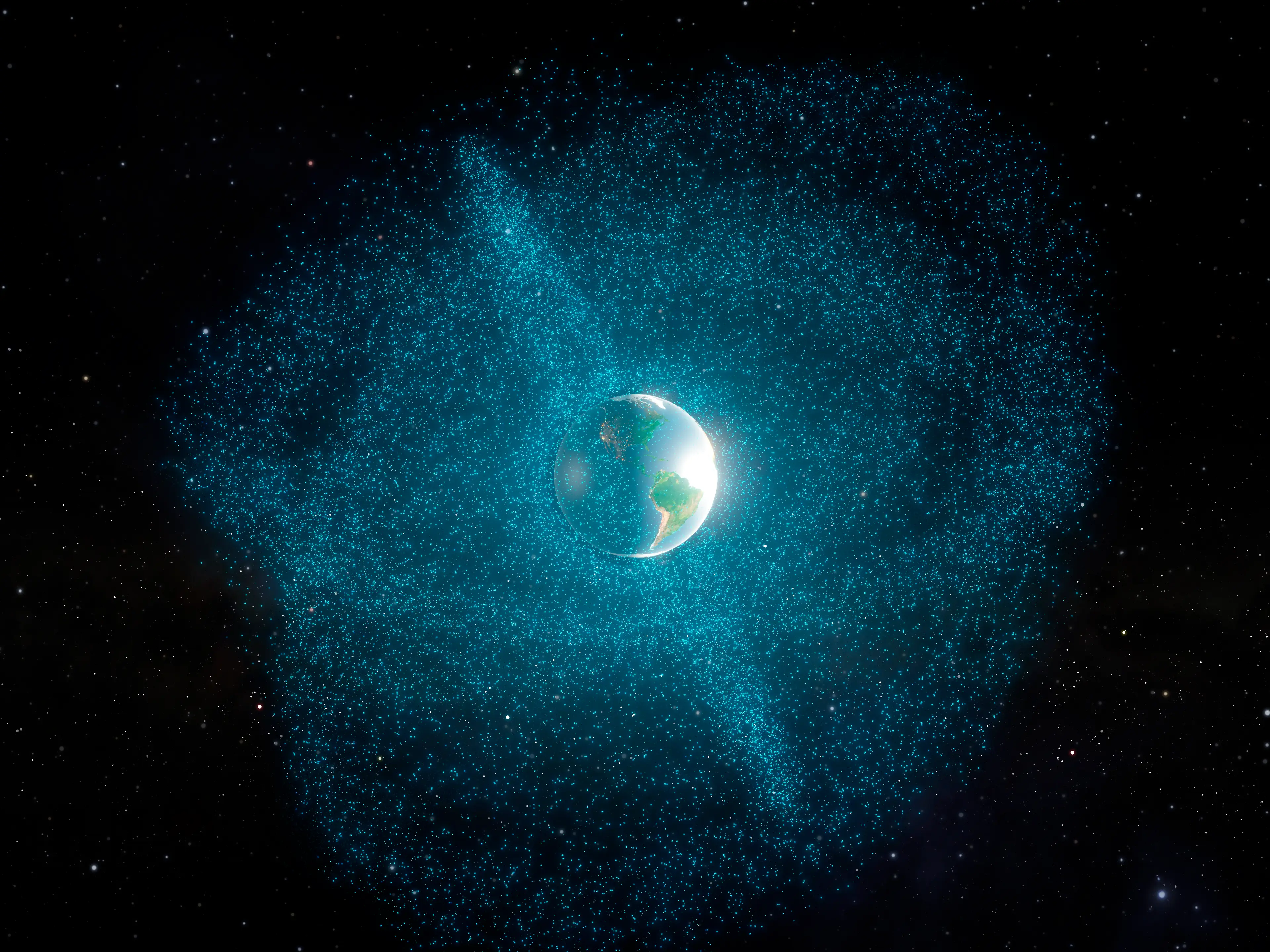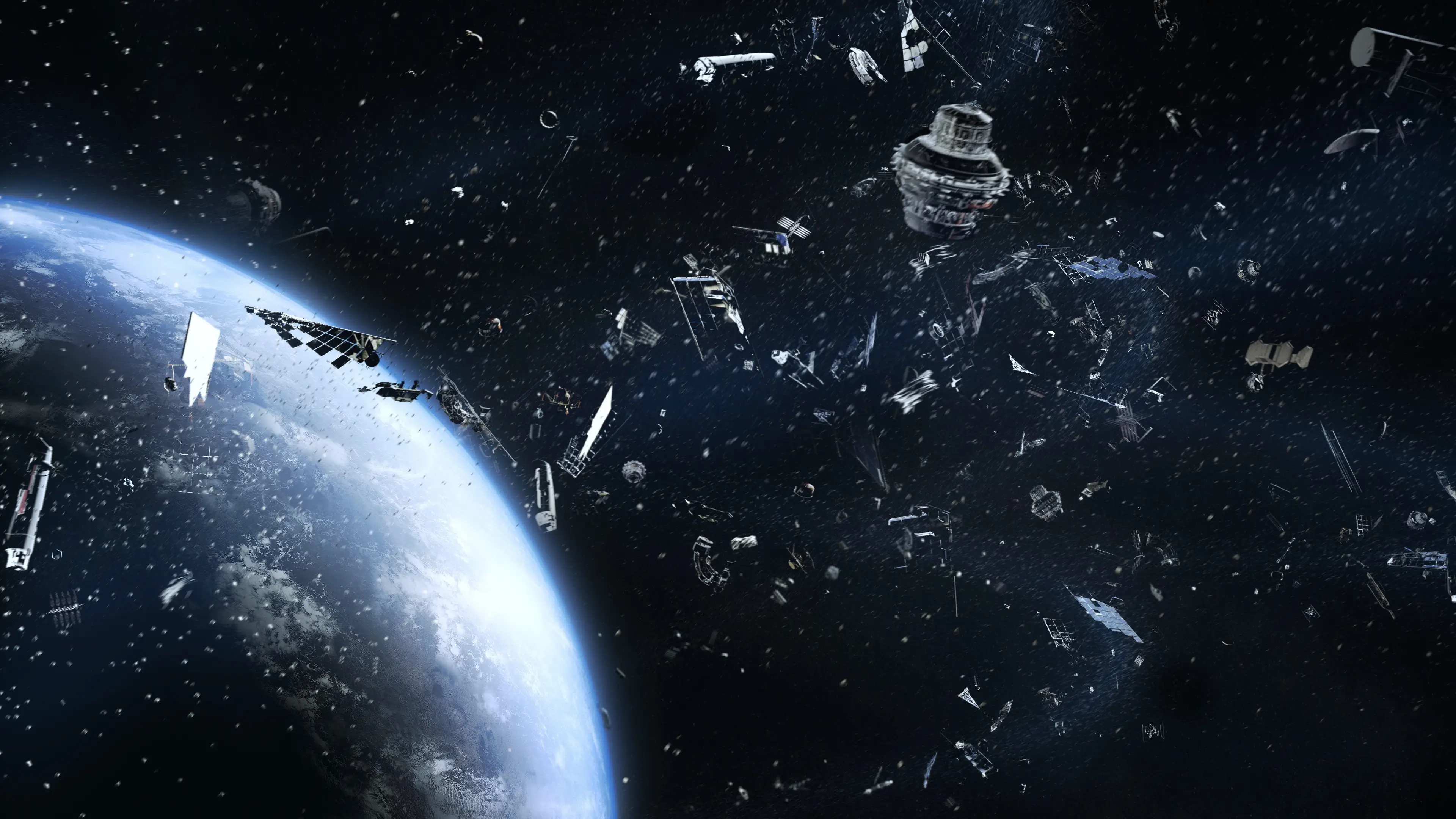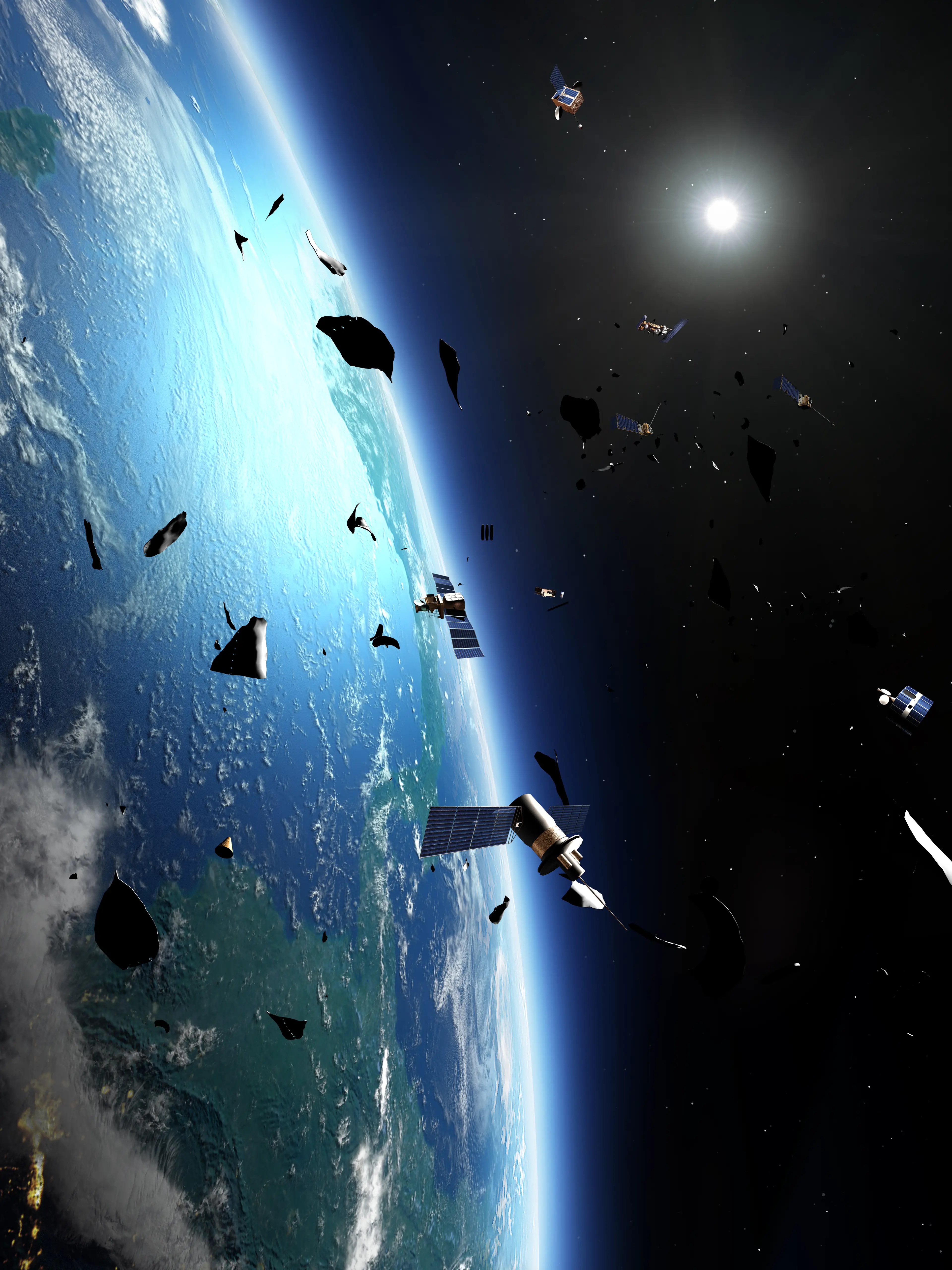
The dangers of the Kessler syndrome to life on Earth as we know it has been laid bare in a fresh warning from academics speaking about the dangers of it should it come true.
Dating back to the 1970s, the Kessler syndrome was first thought up as a scientific hypothesis. But like a lot of science, it was based on probability should certain things happen.
And in the case of the Kessler syndrome, it banked on humanity becoming more and more reliant on objects orbiting Earth - and the problems associated with that.
Fast-forward to 2024 and we've being given a fresh warning about how real a threat this now is to our way of life down on Earth's surface.
Advert
What is Kessler syndrome?
Theorised by NASA scientists Donald Kessler and Burton Cour-Palais back in 1978, the Kessler syndrome warns that objects orbiting Earth in close proximity to the planet will become so crowded that a chain reaction of collisions could begin.
And from there, it might not stop, destroying satellites essential to maintaining humanity as we know it from crop production and internet connections to keeping international travel going and phone calls being made.
In the worst case scenario, the area of space described as low Earth orbit (LEO) will then become uninhabitable by new satellites due to the rings of debris whizzing around the planet.

Kessler syndrome in reality
The area around Earth is set to only get more crowded if the likes of billionaire Elon Musk get their way.
Currently, the European Space Agency estimates there are more than 10,000 satellites orbiting the planet.
Of these, 6,800 are part of the Starlink broadband network, operated by Musk's company SpaceX.
He plans to increase the number of Starlink satellites to 40,000. And given there is already 40,500 pieces of space debris floating around the planet, that is going to make life a lot more crowded.

Stark reality explained
As it stands, objects in low orbit of Earth already record around 1,000 collision warnings every single day. That's according to Thomas Berger, director of University of Colorado's Space Weather Technology Research and Education Center.
Objects larger than around four inches, or 10 centimetres, are tracked and form part of the warnings issued on a daily basis.
Obviously, due to technology limitations and the sheer amount of debris, it's impossible to track everything. Especially when the likes of Russia, in 2021, launched a missile at one of its own satellites as part of a test - creating more than 1,500 pieces of debris (and that's just the traceable bits).

Will the Kessler syndrome really happen?
Dr. Nilton Renno, a professor of climate and space sciences and engineering at the University of Michigan, said: "The analogy that I like to think about space debris is plastic in the oceans.
"We used to think that the oceans are infinite, and we throw in trash and plastic, and now we realise - no, those are finite resources. And we are causing huge damage if we are not careful about what we do."
Carolin Frueh, an associate professor of aeronautics and astronautics at Purdue University in Indiana, said she thinks the concept of the Kessler syndrome is no longer useful but that it works as a moving concept that the unregulated approach to orbit is a problem.
She said she was pessimistic that humanity 'will act timely enough to not have economic damage in the process'.
Topics: Space, World News, Technology, US News, Science, NASA